China's National Development and Reform Commission (NDRC) announced on November 24 that it would buy additional pork for its reserves to push up prices.
The NDRC, China's economic policymaking agency, said it would buy pork for a third time this year. Pork is a staple food in China.
The move comes after the latest figures from China’s National Bureau of Statistics showed pork prices in the country were on a downward trend, falling 0.7% in the first half of November alone.
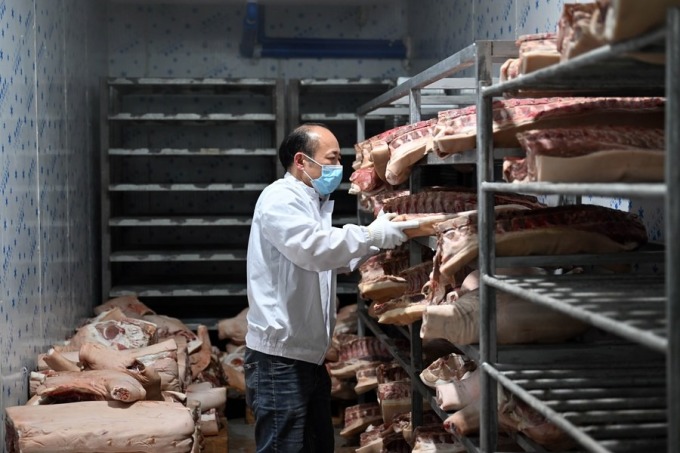
Employees arrange pork in a warehouse in Hainan (China). Photo: Xinhua
Prices had spiked in July, following the NDRC’s announcement to buy more pork reserves. However, prices fell again in early August. In a statement on its official social media page yesterday, the NDRC said it and related agencies would start purchasing and stockpiling pork to bring prices back to reasonable levels.
Pork prices in China have been under pressure this year due to abundant supply and weak demand. Millions of pig farmers in the country have yet to make a profit. Pork consumption typically increases during the winter months, due to the many events and festivals at the end of the year. However, analysts are concerned that demand may be weaker than expected.
The fall in pork prices is also closely related to China's fall into deflation. China's National Bureau of Statistics (NBS) announced on November 9 that the country's consumer price index (CPI) fell 0.2% in October compared to the same period last year. Meat prices fell 17.9% in October, mainly due to a 30.1% drop in pork prices.
Deflation is defined as a sustained and large-scale fall in the prices of goods and services over a period of time. This is not a positive thing for the economy. Because when consumers and businesses delay spending in anticipation of further price falls, economic activity is stifled.
Ha Thu (according to Xinhua, Bloomberg)
Source link


![[Photo] Promoting friendship, solidarity and cooperation between the armies and people of the two countries](https://vstatic.vietnam.vn/vietnam/resource/IMAGE/2025/4/17/0c4d087864f14092aed77252590b6bae)
![[Photo] General Secretary To Lam receives French Ambassador to Vietnam Olivier Brochet](https://vstatic.vietnam.vn/vietnam/resource/IMAGE/2025/4/17/49224f0f12e84b66a73b17eb251f7278)

![[Photo] National Assembly Chairman Tran Thanh Man meets with outstanding workers in the oil and gas industry](https://vstatic.vietnam.vn/vietnam/resource/IMAGE/2025/4/17/1d0de4026b75434ab34279624db7ee4a)
![[Photo] Closing of the 4th Summit of the Partnership for Green Growth and the Global Goals](https://vstatic.vietnam.vn/vietnam/resource/IMAGE/2025/4/17/c0a0df9852c84e58be0a8b939189c85a)
![[Photo] Nhan Dan Newspaper announces the project "Love Vietnam so much"](https://vstatic.vietnam.vn/vietnam/resource/IMAGE/2025/4/17/362f882012d3432783fc92fab1b3e980)


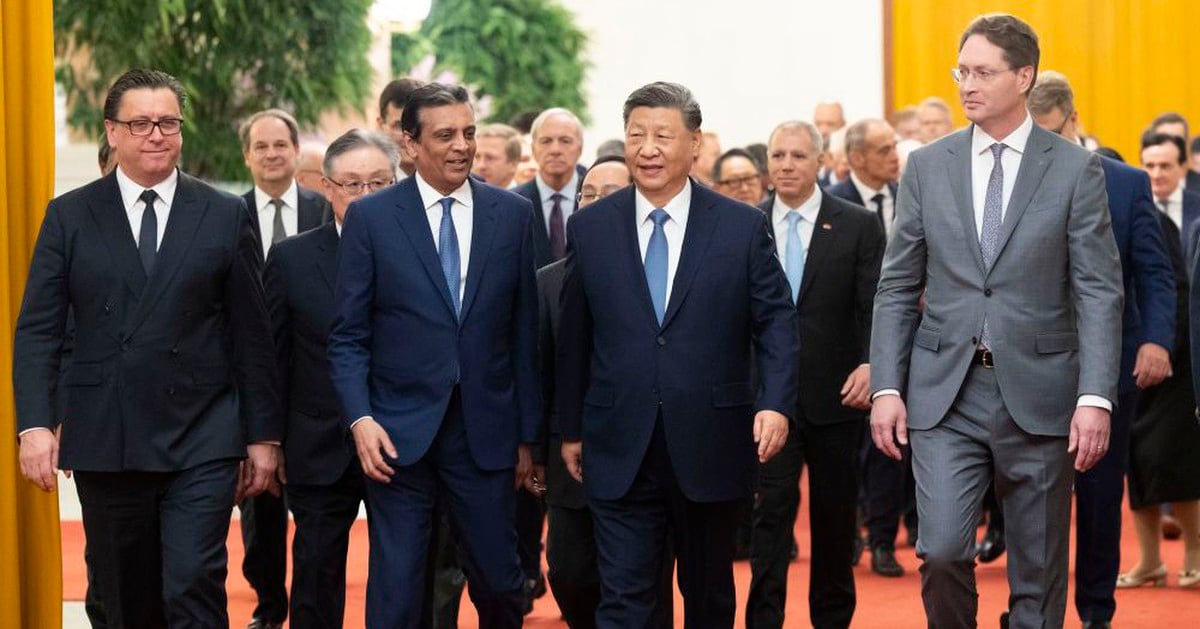

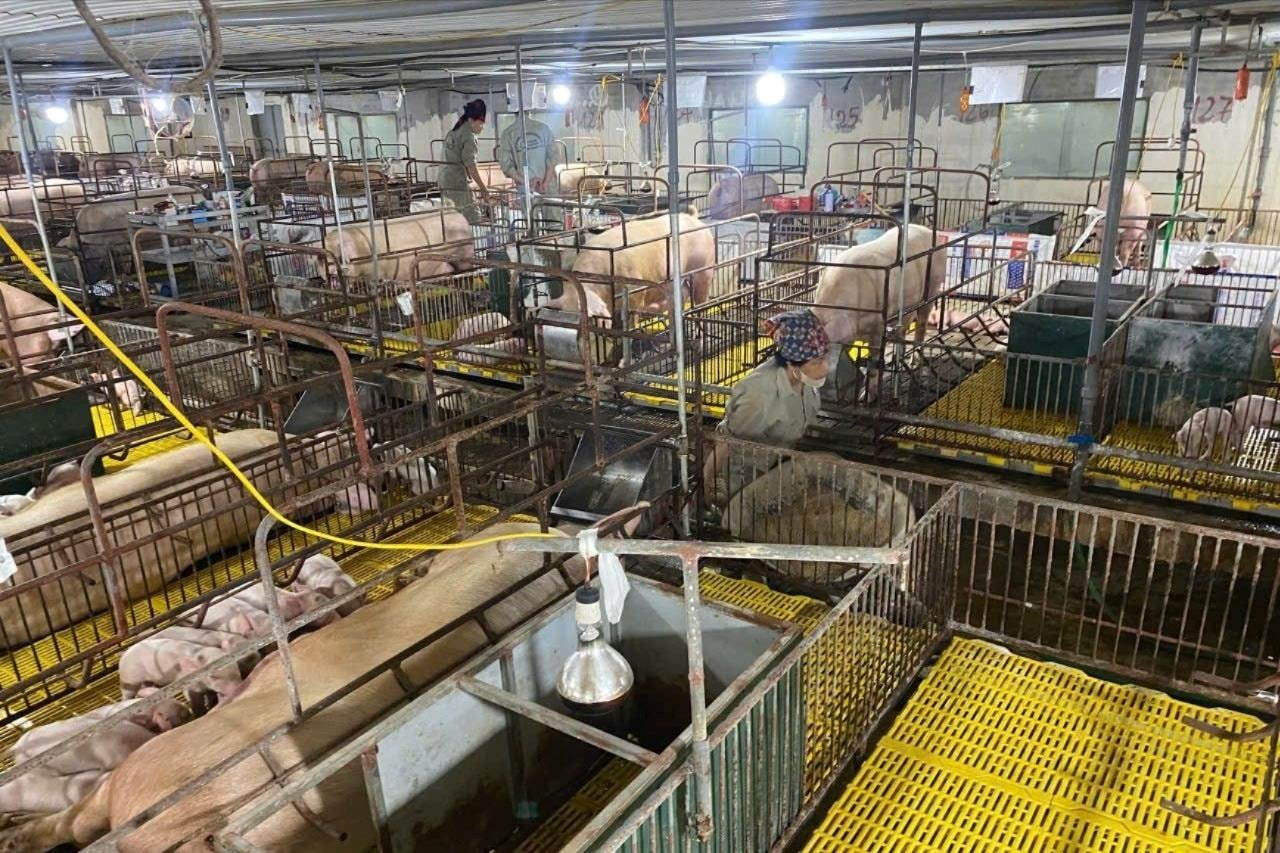
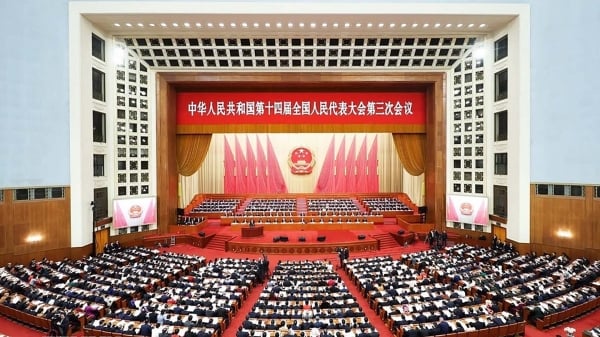

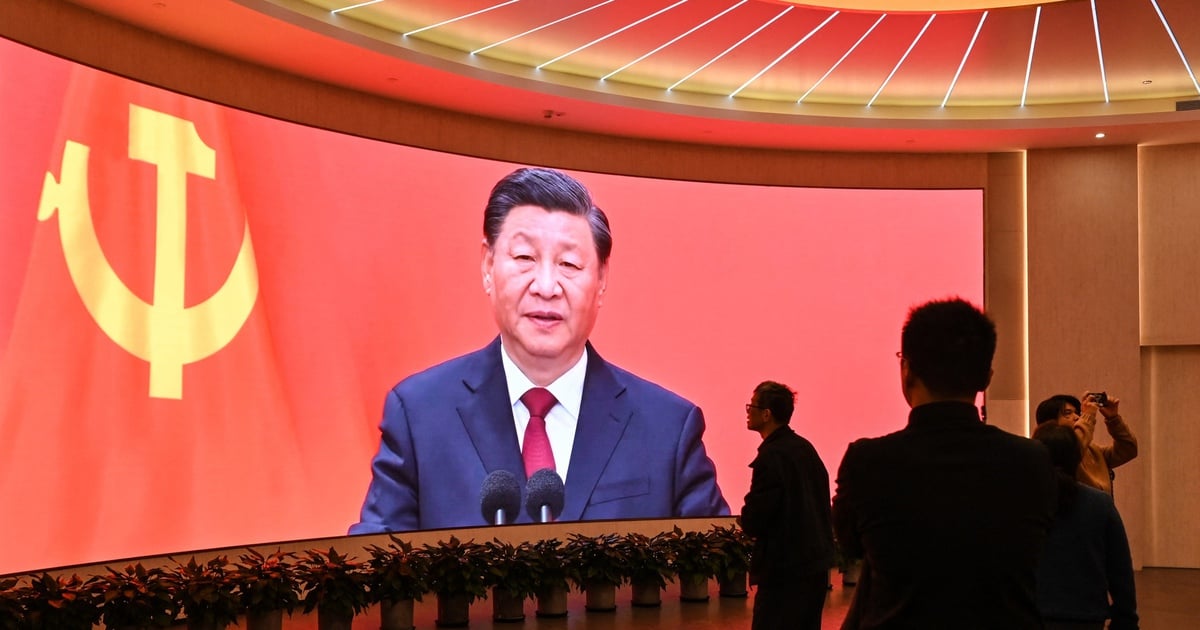

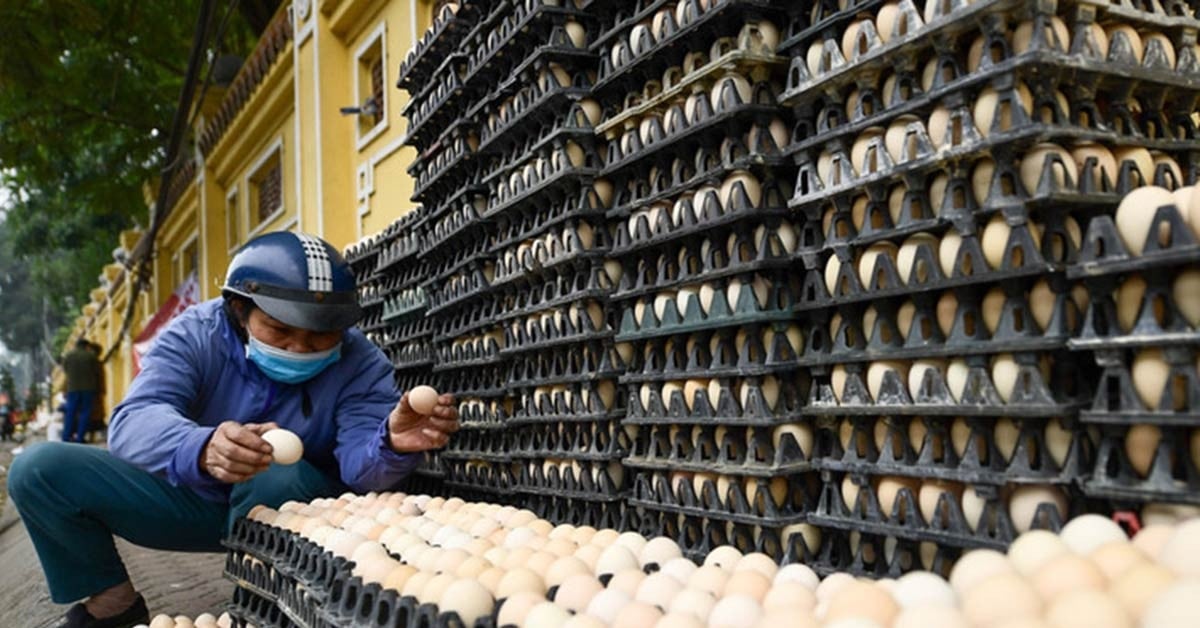

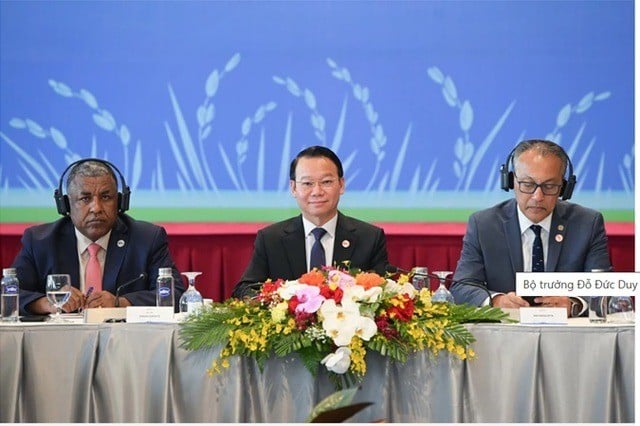

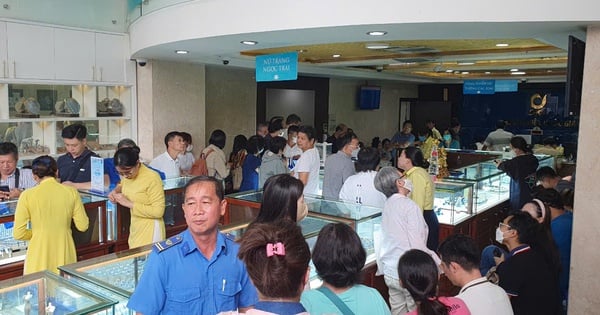













![[Photo] Welcoming ceremony for Chinese Defense Minister and delegation for friendship exchange](https://vstatic.vietnam.vn/vietnam/resource/IMAGE/2025/4/17/fadd533046594e5cacbb28de4c4d5655)


























![[Video] Viettel officially puts into operation the largest submarine optical cable line in Vietnam](https://vstatic.vietnam.vn/vietnam/resource/IMAGE/2025/4/17/f19008c6010c4a538cc422cb791ca0a1)


















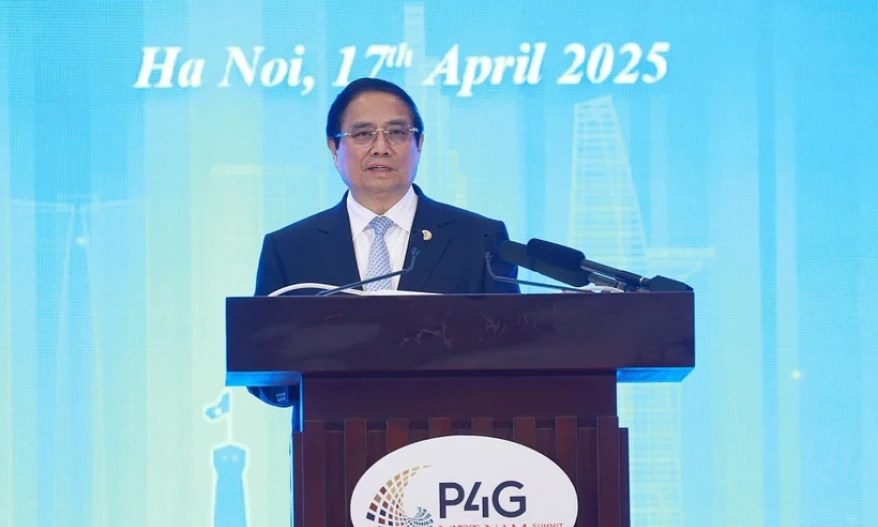





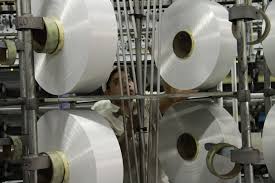












Comment (0)